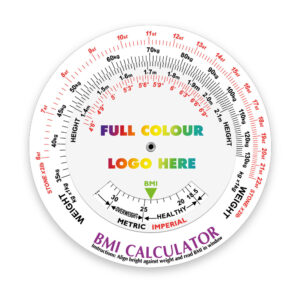Keeping track of your health has never been easier, and a BMI calculator is a simple yet powerful tool for assessing whether your weight falls within a healthy range. Whether you’re a home user curious about your fitness, a student studying health sciences, or a professional guiding clients, understanding how to use one correctly is essential.

What is BMI and why does it matter?
BMI, or Body Mass Index, is a measurement that compares your weight to your height. It provides a general indication of whether you’re underweight, a healthy weight, overweight, or obese. While it’s not a perfect metric—it doesn’t account for muscle mass, bone density, or body composition—it remains a widely used and reliable guide for overall health assessment.
How to use a BMI calculator
Using a BMI calculator is straightforward. You only need two pieces of information:
- Your weight (in kilograms)
- Your height (in metres)
Step 1: Measure accurately
For the most precise results, weigh yourself in the morning before eating and without heavy clothing. When measuring height, stand straight against a wall without shoes.
Step 2: Input your details
A digital BMI calculator will do the maths for you, instantly providing your BMI score. If you’re using a manual version, such as this BMI calculator, simply align your weight and height on the scale to read your result.
Step 3: Interpret your BMI score
Your BMI will fall into one of the following categories:
- Under 18.5 – Underweight
- 18.5 – 24.9 – Healthy weight
- 25 – 29.9 – Overweight
- 30 and above – Obese
These ranges are general guidelines. For athletes, elderly individuals, and those with higher muscle mass, BMI might not be the most accurate reflection of health.
The importance of a healthy body image
While BMI is a useful health indicator, it’s important not to let a number define your self-worth. A healthy body image means feeling comfortable and confident in your own skin, regardless of the numbers on a scale.
Social media, unrealistic beauty standards, and diet culture can sometimes promote unhealthy relationships with body weight. Remember that health is about more than just BMI—it includes mental wellbeing, nutrition, strength, and lifestyle. Instead of focusing solely on weight, consider how you feel, how well your body functions, and whether your habits support long-term health.
When to use a BMI calculator
A BMI check is useful for tracking your health over time. If you’re starting a new fitness plan, trying to lose weight, or monitoring growth in children, regular checks can help assess progress. However, BMI should always be considered alongside other factors such as diet, exercise, and overall wellbeing.
A BMI calculator is a great starting point for understanding your weight and health. While not the only measure of fitness, it provides a quick and easy way to assess whether your weight is within a healthy range. For those looking for a reliable, easy-to-use tool, consider investing in a BMI calculator disc like this one.
Above all, remember that health isn’t just about numbers—it’s about feeling strong, confident, and happy in your own body.
NOTE: Our guides are intended as just that, a guide. Please seek professional instruction before attempting to use these tools yourself.


